Thu Feb 13 2020 · 10 min read
Did You Know Armenia Allows Internet Voting? (But It’s Only For Some)

By Harout Manougian
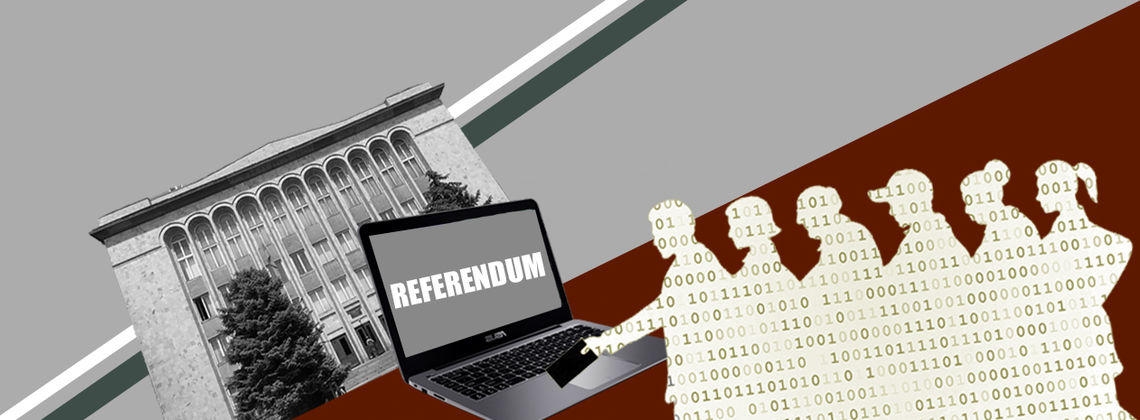
On Sunday evening, Prime Minister Nikol Pashinyan was attending a concert at the Yerevan Opera Theater, when he began a short Facebook Live session to encourage Armenian citizens in the diaspora to book flights to Armenia in order to vote in the upcoming referendum. President Armen Sarkissian had just set the date of the referendum to Sunday, April 5, 2020, and Pashinyan was calling on his supporters living abroad to take advantage of new routes by low-cost airlines Ryanair and Wizz Air to come to Armenia by that date and vote in person at the precinct of their last registered address.
There is a small, select group of people, however, that don’t normally need to make such a long journey to cast their ballot. Article 62 of the Electoral Code allows three groups of people to vote electronically (over the Internet). They are:
-
Diplomatic staff posted at Armenian embassies and consulates abroad, and their family members who reside abroad with them
-
Military servicemen studying abroad or posted to a long-term mission outside the country’s borders
-
Representatives, who are located abroad, of corporations registered in Armenia, and their family members who reside abroad with them [1]
Although the Law on Referendums makes many references to procedures laid out in the Electoral Code (which covers parliamentary and municipal elections), it does not explicitly mention electronic voting. Internet voting was used by diplomatic staff posted abroad and their family members in the December 6, 2015 constitutional referendum, but both the Electoral Code and the Law on Referendums have been replaced since then. It remains to be seen whether the process will be implemented for the upcoming April 5 referendum.
Out-of-Country Voting Used to be In-Person
In a report published in 2015, Hamazasp Danielyan, then a professor at Yerevan State University and now a Member of Parliament with the My Step Caucus, laid out the history of out-of-country voting in Armenian elections. Much of the following information is taken from that report.
Starting with the 1996 presidential election, any Armenian citizen residing abroad could register to vote in-person at their nearest Armenian embassy or consulate. One news report stated that “about 15,000” such voters took advantage of the opportunity in the following 1998 presidential election. However, subsequent elections saw votes cast at diplomatic missions drop to a fraction of that number. At the time, Armenia did not allow dual citizenship; any Armenians residing abroad that took on the citizenship of their new host country would automatically lose their right to vote.
During the 2003 presidential election, polls were opened at diplomatic missions in 34 different cities outside Armenia. In the top-two runoff round on March 5, the government-owned Armenpress news agency reported that incumbent President Robert Kocharyan had defeated his challenger Stepan Demirchyan in every out-of-country polling station except Sao Paulo, Brazil (where Demirchyan took all 12 votes). According to the unofficial results at 9:00 a.m. the day after the election, Kocharyan took 83% of the out-of-country votes; in comparison, he received 67% of the votes overall in the nationwide results.
The last time in-person, out-of-country voting was available at Armenian embassies was the 2005 constitutional referendum. Among other measures, the proposals called for allowing dual citizenship. PanARMENIAN.net reported that turnout among the 3937 Armenian citizens registered abroad was 88%, with 96% of them voting to ratify the amendments.
With the introduction of dual citizenship, however, the large comparative size of the Armenian diaspora raised the prospect of the country’s policies being heavily influenced by potential voters who did not live in the country. Consequently, the provision for out-of-country voting at embassies was removed from the Electoral Code in 2007.
Notably, the Republic of Artsakh, whose Electoral Code closely mirrors that of Armenia, never removed their out-of-country voting provision. In their upcoming presidential and parliamentary election on March 31, 2020, many Artsakh citizens will be casting their ballots at the Permanent Representation Office in Yerevan and could conceivably also do so at similar offices in Moscow, Washington, Paris, Berlin, Beirut and Sydney, Australia.
Internet Voting Introduced in 2011
Up to 2005, all out-of-country votes were cast in-person at embassies and consulates, on physical paper ballots. After this allowance was removed, no voting at all was permitted outside Armenia’s borders for the 2007 parliamentary and 2008 presidential elections. As ambassadors of Armenia, their consular staff and their families were not likely to be in the country on Election Day; they were virtually barred from participating in elections by the nature of their work under the new arrangement.
In 2011, a revamped Electoral Code made a special allowance for this small, elite group so that they would not be effectively disenfranchised. The provision allowed diplomatic staff and their families, as well as representatives of corporations registered in Armenia who were posted abroad, to vote electronically in national elections, over the Internet. Notably, the same courtesy was not extended to all Armenian emigrants.
Danielyan’s 2015 report, mentioned earlier, questioned whether Internet voting would be able to maintain ballot secrecy for its politically-exposed voters. It also brought up the inconsistency of excluding military servicemen posted abroad. The following year, the new 2016 Electoral Code extended Internet voting privileges to military servicemen serving or studying abroad.
Those using the Internet voting process need to download a program onto their computer, be issued personal credentials to log in to the system, and send their vote to central server up to five days before Election Day.
Internet Voting Results
Given its unique constituency, Internet voting results in Armenian elections have tended to be quite skewed in comparison with overall national totals.
In the 2012 parliamentary election, 91% of e-votes (remember, these are diplomats and their family members) voted for the Republican Party of Armenia (RPA), while the RPA secured only 44% of the popular vote nationwide. Turnout was also significantly higher, at 82% for Internet voters compared to 62% nationally. It is important to remember that the total number of Internet votes was extremely small, making up only 228 of the 1.5 million votes cast.
In the 2013 presidential election, 97% of e-votes went to re-electing Serzh Sargsyan, compared to 59% of paper ballots cast in-country. This time, turnout for Internet voters was a whopping 94%, compared to 60% nationally. A similar pattern emerged during the 2015 constitutional referendum when, again, 97% of e-votes were in favor of ratifying the changes proposed by Sargsyan’s RPA government, with a 92% turnout. The national figures were 66% in favor, with a 51% turnout.[2]
After military servicemen were added to the Internet voting rolls, the results were less extreme for the 2017 and 2018 parliamentary elections but still skewed heavily in favor of the government in power. In 2017, 75% of Internet voters (from a turnout of 747) chose the RPA, compared to 49% nationally. In 2018, 85% of Internet voters (from a turnout of 504) chose Pashinyan’s My Step Alliance, compared to 70% nationally.
A few different things could be going on here. One explanation is that diplomats are very motivated to turn out and genuinely very supportive of the authorities that they represent (including the Minister of Foreign Affairs, whom they report to). When the figures are so one-sided, however, they are also left vulnerable to accusations of impropriety. Without any paper ballots to physically count, an opposition figure can allege that the integrity of the software that handled the counting may have been compromised. It could also be that diplomats did not trust that the system kept their vote truly anonymous (whether it actually did or not is almost secondary if there is no initial trust) and that they feared for their career if they were found to be voting “the wrong way.”
Unverifiable By Neutral Observers
For the 2017 parliamentary election, the Citizen Observer Initiative endeavored to post two observers at virtually all of the 2000 polling stations in Armenia. By sending people they trusted to sit in the room all day, keeping their eye on the ballot box, then watching as those paper ballots were counted one by one, the results at each polling station could be independently verified. A “protocol” summarizing the results at each poll is filled out on a paper form and signed by those witnessing the count, with physical copies handed out to them. If different numbers were subsequently reported in the Central Electoral Commission’s poll-by-poll results, it would be glaringly obvious.
With Internet voting, however, the ballot box does not have a single opening that you can watch with your eyes. It is a server, connected to the Internet, processing data packets from across the world. Instead of countable ballots, you might have a log file, saved in the server’s memory. Unfortunately, files can be edited. An observer hoping to verify Internet voting results would have to blindly trust that they were not tampered with. A sloppy hacker (whether a trusted insider or a malicious foreign agent) might leave behind traces that can be picked up but a professional would be capable of changing results while covering their tracks.
Cyberthreats to democracy IT infrastructure are not just theoretical. In 2010, University of Michigan Professor J. Alex Halderman and his team of students hacked the District of Columbia’s Internet voting pilot. Officials had extended an open invitation for “white hat” hackers to try and break into the system, so the attempt was not illegal. They were able to see how people voted, change their votes and even watch the webcam in the server room. They did so without ever stepping foot in DC or election officials finding out (until several days later, only because they changed the web interface to play the University of Michigan anthem). No voting method is perfect but the vulnerabilities that Internet voting introduces allow attacks to be launched with minimal resources at a potentially catastrophic scale.
Verifiable For Vote Bribing or Intimidation Purposes
Even if all the software is programmed honestly and the election doesn’t attract bad actors, Internet voting is still a bad idea because of the fact it is done in an unsupervised location. At a polling station, a voter goes behind a screen alone [3] to mark their ballot. They have affirmed their identity by swiping their passport and cannot show how they marked their ballot before it is dropped into the box. Even if the voter had accepted a vote bribe to choose a certain candidate, it should not be possible for them to prove to their “handler” that they honored the deal.
When voting is taken out of the polling station, however, this strong form of ballot secrecy is lost. It becomes possible for someone to sit beside you as you make your choices. It even becomes possible for someone to request your authentication credentials to just cast the ballot in your place. Although it would be illegal for someone else to vote under your name, it becomes impossible to monitor and social relationships make it unlikely to be reported. If a diplomat asked his spouse to let him vote for her, or sat beside her at the computer as she went through the steps, she is probably not going to call the police on her spouse. If a Ministry of Foreign Affairs official makes an offer to a diplomat to handle the complicated business of installing the Internet voting software and casting the ballot in his place, if viewed as a subtle form of intimidation, he is not likely to risk his career by refusing.
Is the Status Quo Acceptable?
Especially given Armenia’s history of opposition figures challenging official election results, Internet voting, even if only for a small group, is not compatible with the needed focus on election integrity. Alternatives such as postal voting do not necessarily address all of these concerns (they would still take place in an unsupervised location). On the other hand, disenfranchising state representatives is also an unattractive trade-off to propose. On February 18, 2020, representatives from the International Institute for Democracy and Electoral Assistance (International IDEA), an intergovernmental organization headquartered in Stockholm that supports worldwide democratic initiatives, will be in Yerevan at the invitation of the Parliamentary Working Group on Electoral Reform to discuss the complex topic of out-of-country voting.
On one hand, policy-makers could argue that the total number of Internet voters is so small that any suspected fraud is not likely to actually affect the final election result. On the other hand, if Internet votes have no meaningful influence on the election, are the costs of implementation and threats to credibility justified in the first place? At any rate, given the risks to electoral integrity, extending Internet voting to all Armenian citizens living abroad is not expected to become one of the options on the table.
* The author is currently a volunteer legislative assistant with MP Danielyan and participated in the 2017 election observation mission conducted by the Citizen Observer Initiative.
--------------
1- None of the people registered to vote over the Internet were identified to be in this group.
2- Even official national vote totals during this period were rejected by some observer groups, including Raffi Hovhannissian, the main challenger in the 2013 presidential election.
3- Armenia still allows assisted voting but that’s a story for another article.
also read
Referendum Called
By Harout Manougian
Armenia’s National Assembly voted to call a constitutional referendum yesterday, which, if passed, would dismiss seven of the nine judges currently sitting on the Constitutional Court.
The Armenian Government’s Plan to Change the Constitution
By Lusine Sargsyan , Harout Manougian
Since Armenia’s independence, every head of government has shaped the country’s Constitution; Prime Minister Nikol Pashinyan has made it clear that he will not be an exception.
Direct Democracy: Can Citizens in Armenia Force a Referendum?
By Harout Manougian
Armenia’s Law on Referenda was passed in 2018 but how effective is it at giving citizens a voice?
Armenia and Artsakh: A Tale of Two Electoral Reforms
By Harout Manougian
Electoral Code reform has been on the agenda in Armenia following the Velvet Revolution last year and the Republic of Artsakh just enacted amendments to its Electoral Code as it prepares for national elections in 2020. Harout Manougian looks at the situation in both republics.
Negating the Honeymoon Discourse
By Harout Manougian , Nerses Kopalyan
The International Republican Institute recently published its fourth public opinion survey since the Velvet Revolution. The survey found that a healthy majority of Armenians believe the country is heading in the right direction.
Armenian Political Parties: Where Should the Money Come From?
By Harout Manougian
Harout Manougian writes about how Armenia’s political parties are financed and how that could change as part of the National Assembly’s ongoing electoral reform effort.


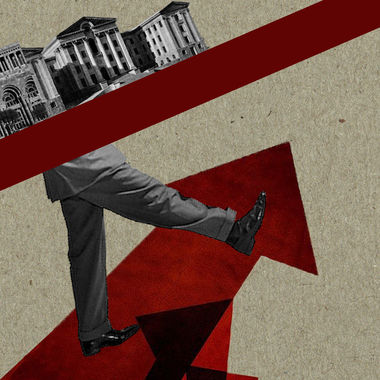
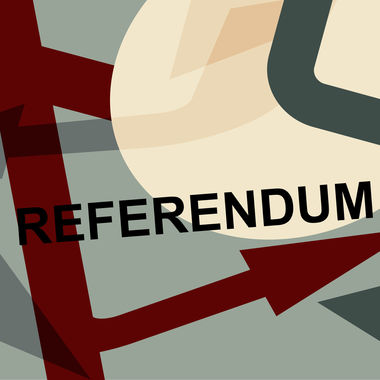
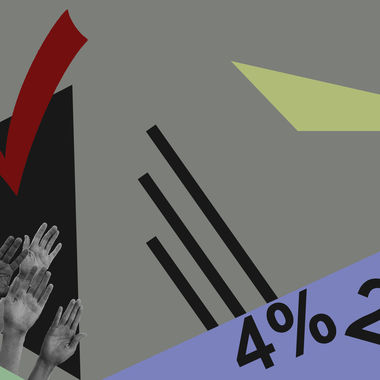
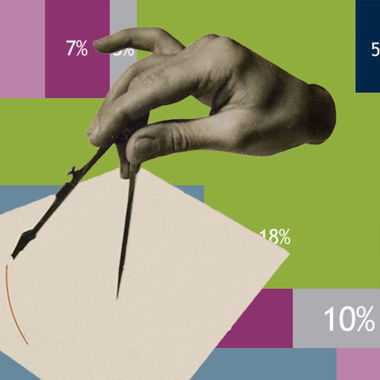



EVN Report welcomes comments that contribute to a healthy discussion and spur an informed debate. All comments will be moderated, thereby any post that includes hate speech, profanity or personal attacks will not be published.